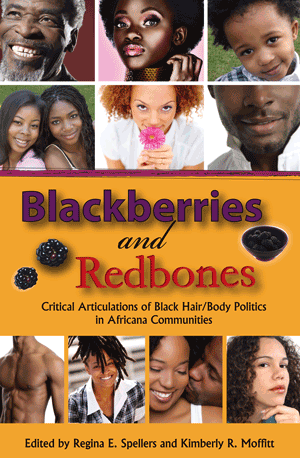New Photo Essay: (1)ne DropPosted in Articles, Arts, Media Archive, United States on 2011-10-23 00:52Z by Steven |
(1)ne Drop
2011-09-26
Comments by Steven F. Riley: In keeping with the non-commercial aspect of this site, I have modified the fundraising press release to provide informational content about the book project. There is howerver, a short fundraising request at the end of the video.
PHILADELPHIA, PA – Africana Studies scholar Yaba Blay, Ph.D., and award-winning photographer Noelle Théard [photographs] are collaborating on an innovative new project: a photo essay book that explores the “other” faces of Blackness – those folks who may not be immediately recognized, accepted, or embraced as Black in our visually racialized society. Entitled (1)ne Drop, a reference to the historical “one-drop rule,” the project seeks to challenge narrow, yet popular perceptions of what “Blackness” is and what “Blackness” looks like by pairing candid personal narratives with beautifully captured portraits.
“With this project, I wanted to look at the other side, or at least another side. When we talk about skin color politics, for the most part, we only discuss the disadvantages associated with being dark-skinned. We know about the lived experience of being dark-skinned in a society where lighter skin and White skin are privileged,” says Blay, the author for the project. “This is not to say that that discussion is over or resolved or that we need to stop discussing it. But we also need to start having more balanced and holistic conversations about skin color.”…
From the “About” page.
People of African descent reflect a multiplicity of skin tones and phenotypic characteristics. Often times, however, when met by people who self-identify as “Black,” but do not fit into a stereotypical model of Blackness, many of us not only question their identity, but challenge their Blackness, and thus our potential relationship to them. A creative presentation of historical documentation, personal memoirs, and portraiture, (1)ne Drop literally explores the “other” faces of Blackness—those who may not immediately be recognized, accepted, or embraced as “Black” in this visually racialized society. Through portrait documentaries (book and film), photography exhibitions, and public programming, the project intends to raise social awareness and spark community dialogue about the complexities of Blackness as both an identity and a lived reality.
(1)ne Drop seeks to challenge narrow, yet popular perceptions of what “Blackness” is and what “Blackness” looks like—if we can recalibrate our lenses to see Blackness as a broader category of identity and experience, perhaps we will be able to see ourselves as part of a larger global community. In the end, (1)ne Drop hopes to awaken a long-overdue and much needed dialogue about racial identity and skin color politics.
For more information, click here.
